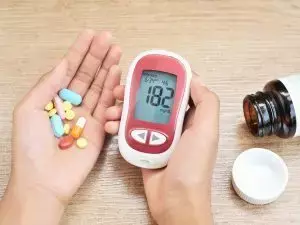- Home
- Medical news & Guidelines
- Anesthesiology
- Cardiology and CTVS
- Critical Care
- Dentistry
- Dermatology
- Diabetes and Endocrinology
- ENT
- Gastroenterology
- Medicine
- Nephrology
- Neurology
- Obstretics-Gynaecology
- Oncology
- Ophthalmology
- Orthopaedics
- Pediatrics-Neonatology
- Psychiatry
- Pulmonology
- Radiology
- Surgery
- Urology
- Laboratory Medicine
- Diet
- Nursing
- Paramedical
- Physiotherapy
- Health news
- Fact Check
- Bone Health Fact Check
- Brain Health Fact Check
- Cancer Related Fact Check
- Child Care Fact Check
- Dental and oral health fact check
- Diabetes and metabolic health fact check
- Diet and Nutrition Fact Check
- Eye and ENT Care Fact Check
- Fitness fact check
- Gut health fact check
- Heart health fact check
- Kidney health fact check
- Medical education fact check
- Men's health fact check
- Respiratory fact check
- Skin and hair care fact check
- Vaccine and Immunization fact check
- Women's health fact check
- AYUSH
- State News
- Andaman and Nicobar Islands
- Andhra Pradesh
- Arunachal Pradesh
- Assam
- Bihar
- Chandigarh
- Chattisgarh
- Dadra and Nagar Haveli
- Daman and Diu
- Delhi
- Goa
- Gujarat
- Haryana
- Himachal Pradesh
- Jammu & Kashmir
- Jharkhand
- Karnataka
- Kerala
- Ladakh
- Lakshadweep
- Madhya Pradesh
- Maharashtra
- Manipur
- Meghalaya
- Mizoram
- Nagaland
- Odisha
- Puducherry
- Punjab
- Rajasthan
- Sikkim
- Tamil Nadu
- Telangana
- Tripura
- Uttar Pradesh
- Uttrakhand
- West Bengal
- Medical Education
- Industry
DPP-4 inhibitors use not linked to pneumonia in diabetics, says study

Italy: The use of dipeptidyl-peptidase 4 inhibitors (DPP-4i) in people with type 2 diabetes is safe with regard to pneumonia risk, a recent study published in the journal Diabetes, Obesity and Metabolism has found.
DPP‐4i are a class of oral hypoglycemia drugs that block the enzyme dipeptidyl peptidase-4. They are used for the treatment of type 2 diabetes. There have been concerns regarding DPP-4i to be associated with pneumonia risk. Mario Luca Morieri, University of Padova, Padova, Italy, and colleagues analyzed observational data and clinical trials to explore whether the use of DPP‐4i modifies the risk of pneumonia.
The researchers identified diabetes patients in the Veneto Region administrative database. They performed propensity score matching (PSM) between new users of DPP‐4 inhibitors and new users of other oral glucose-lowering medications (OGLM). The rate of hospitalization for pneumonia between matched cohorts were then compared using the Cox proportional hazard model. The same analysis was repeated using the database of a local diabetes outpatient clinic.
Similar observational studies from the literature were retrieved by the researchers to perform a meta‐analysis. Results from trials reporting pneumonia rates among patients randomized to DPP‐4 inhibitors versus placebo/active comparator were also meta-analyzed.
Key findings of the study include:
- In the Regional database, after matching 6495 patients/group, new users of DPP‐4 inhibitors had a lower rate of hospitalization for pneumonia than new users of other OGLM (HR 0.76).
- In the outpatient database, after matching 867 patients/group, new users of DPP‐4 inhibitors showed a non‐significantly lower rate of hospitalization for pneumonia (HR 0.65).
- The meta‐analysis of observational studies yielded an overall non‐significant lower risk of hospitalization for pneumonia among DPP‐4i users (RR 0.81).
- The meta‐analysis of randomized controlled trials showed no overall effect of DPP‐4i on pneumonia risk (RR 1.06).
"Use of DPP‐4i can be considered safe with regards to the risk of pneumonia," concluded the authors.
The study, "Exposure to DPP ‐4 inhibitors and risk of pneumonia among people with type 2 diabetes. Retrospective cohort study and meta‐analysis," is published in the journal Diabetes, Obesity and Metabolism.
DOI: https://doi.org/10.1111/dom.14142
Dr Kamal Kant Kohli-MBBS, DTCD- a chest specialist with more than 30 years of practice and a flair for writing clinical articles, Dr Kamal Kant Kohli joined Medical Dialogues as a Chief Editor of Medical News. Besides writing articles, as an editor, he proofreads and verifies all the medical content published on Medical Dialogues including those coming from journals, studies,medical conferences,guidelines etc. Email: drkohli@medicaldialogues.in. Contact no. 011-43720751


